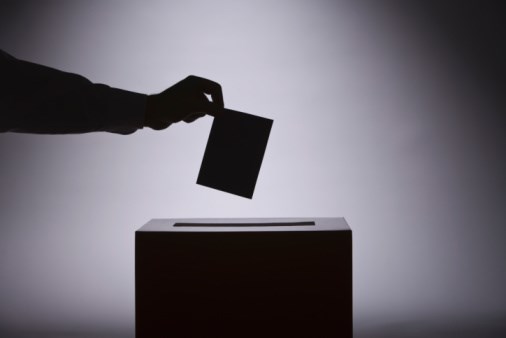With a federal election looming, the question of lowering the voting age in Canada from 18 to 16 is once again on the table, not for this election but for the next time around in 2023.
Adding 16- and 17-year-olds to the voters’ rolls, mathematically at least, could add as many as just under a million new voters into the election.
In the 2015 Canadian federal election, the participation of voters aged 18 to 24 increased by 18.3 percentage points to 57.1 per cent (from 38.8 per cent in 2011).
This stands in stark comparison to the 20 per cent turnout for the same age group in the 2015 U.S. midterms.
If that indicates anything anything, it could be that younger Canadians are becoming more engaged with the political process.
The obvious question might be: “Why should 16-year-olds take an interest in the Canadian politics and electoral process at all?”
The answer might rest in the fact that the costs of college, housing, and health care, all issues today’s 16-year-olds will need to deal with soon, have all risen astronomically in the past few decades.
Compared with their parents, millennials have taken on at least 300 per cent more student debt, and they’re about half as likely to own a home as young adults in 1975.
So what else do we know about 16-year-old potential voters? Experts point to the significance of developmental differences between genders, with the girls starting to slow down in terms of physical and emotional development while the boys are sometimes just getting started.
Both genders are becoming more interested in personal appearance, fitting in with friends, relationships, resisting peer pressure, getting a driver’s licence and, increasingly, what is fair and what is not.
Part of what motivates younger potential voters is a justified disillusionment about the adults who, for reasons as ignoble as they are inexplicable, reduce electioneering to name-calling and finger-pointing, rather than providing any cogent analysis of the serious issues to hand.
Ironically, these “adults” are the very people who should be raising the bar on the ethics and integrity of large “P” politics.
Subsequently, we see an increasingly impatient activism by 16-year-olds on issues such as climate change, immigration and LGBTQ issues and gun control, about which some party leaders are reluctant to speak, much less act.
While that makes for good TV news clips, it does nothing to encourage kids to understand that the complex issues are more multifaceted than binary. So we see younger folks making simplified, rather than multifaceted, judgments on complex issues.
Without adequate objective preparation, that leaves them politically vulnerable to emotional appeals on the big issues.
Psychologists who research voter decision-making distinguish between “cold cognition” of issues independent of emotional involvement as opposed to “hot cognition” which based on emotional reaction in the absence of reasoning or rationality.
That’s not to say 16-year-olds are not capable of critical analysis of national issues, but it does raise the question of who has the skill set to lead discussions on these issues in an educative, non-political way.
For teachers, required by their own professional code of ethics and by the School Act to maintain a non-political perspective in their classrooms, these topics are a minefield of accusations of bias.
Political parties in whose interest it is to advocate lowering of the voting age argue that a change in voting age would foster a culture of informed voting by including 16- and 17-year-olds.
Those opposed to such a change suggest that at 16, fewer young folks are worldly-wise and less ready to ask the right questions, and might be more willing to support charismatic candidates who are entertaining rather than those whose platforms, while not as amusing, doggedly stick to facts.
Yet in 2014, when the electoral franchise in Scotland was, for the first time, extended to include 16- and 17-year-olds to consider the extremely complex and highly emotional referendum question “Should Scotland be an independent country?” the “No” vote won the day 55 per cent to 45 per cent, with the strongest support for “Yes” highest among those aged in their late 20s and early 30s, but with an even higher “No vote” among those aged between 16 to 24.
Are 16-year-olds ready to vote right now? Maybe or maybe not, but either way, it is up to those advocating the lowering of voting age to set aside the rhetoric and create non-partisan information systems that develop younger folks’ confidence and willingness to thoughtfully and critically take on the responsibility participation in Canadian democracy.
Geoff Johnson is a former superintendent of schools.



